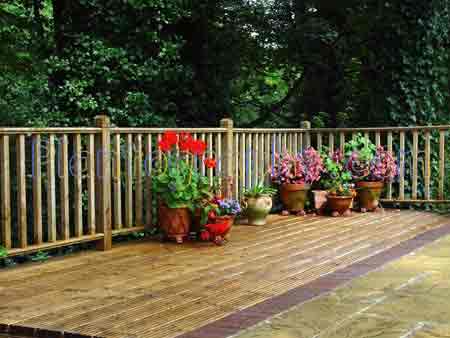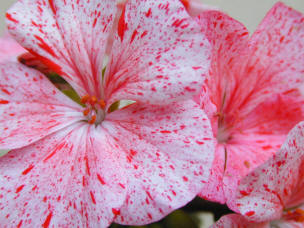Mildew on Roses and How to treat - cure it.
The mildew that normally affects roses, is a form of powdery mildew. There is also a more serious - but rarer for of mildew (Downy Mildew) which this article is not concerned with. The white powdery mildew mould start off on the leaves and soon spreads to buds and other young rose shoots.
The affected foliage curls up and eventually falls off if not treated. Flower buds may not open properly, and if they do, will be severely affected. As distinct from Blackspot, Rose mildew is prevalent in dry hot conditions - in particular when the root area is dry and lacking moisture.
A light case of Powdery mildew in early summer.
It usually becomes visible in mid/late summer and autumn. In particular, hot autumns - with dry hot days followed by cold nights - will bring the powdery mildew disease to the forefront.
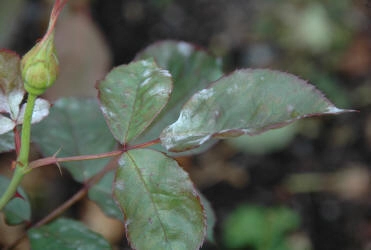 Poor air circulation is a well documented cause, and is particularly
a problem with climbing roses against a wall, or bush roses within
confined spaces.
Poor air circulation is a well documented cause, and is particularly
a problem with climbing roses against a wall, or bush roses within
confined spaces.
The affected leaves and shoots showing any sign of mildew, should be cut off and burned. Combine this activity with a good all-round rose fertiliser feed to help establish new healthy growth. A good mulching of rotted organic matter will help conserve moisture at the root area.
There are several varieties that are very susceptible to rose Mildew - among them being Frensham and Iceberg climbing roses.
A preventative spraying routine can be started in early spring, though it is normally sufficient to start spraying at first sign of the mildew. Repeat applications of rose fungicide, or a combined spray will then be necessary - every two weeks. Read the label.
A good organic treatment for rose mildew, is with a mixture of Baking Powder and vegetable oil (The latter to help the baking powder to 'stick' to the rose leaves.
Prevention is best achieved by
- Mulching around the rose root system in early spring
- Feed with a general rose fertilizer - not high in Nitrogen. Tomato fertilizer will also be suitable.
- Grow mildew resistant Rose varieties.
- Ensure plenty of air circulation and not dense shade.
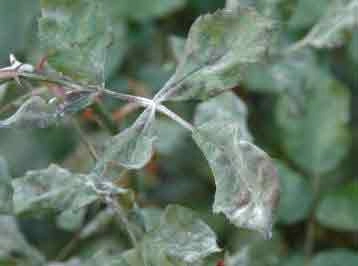
In this case, the powdery mildew has all but taken over the rose bush and leaf drop will be inevitable. All that can be done at this stage, is to pick off the dead leaves and destroy by burning. Spray the remaining bush weekly - and the soil around it with Multirose or Systhane fungicide. Keep the rose well watered and ensure that the water soaks well into the root zone.
Far better to have 'prevented' this degree of rose mildew by following steps above.
Best Selling Gardening Products
Popular Gardening Sections
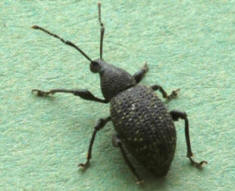
Problems
Identify Weeds in The Garden - How to deal with weeds. Diseases and Pest which harm your garden and plants, learn how to prevent, deter and erradicate your garden problems.
Garden Problems
Pruning
Pruning Guide. Shrubs flower better with correct pruning. Many illustrations and examples of what to do - and when. Includes evergreens, roses, flowering shrubs, spring flowering shrubs and pruning for stem effect. This is our most viewed and comprehensive section,
Pruning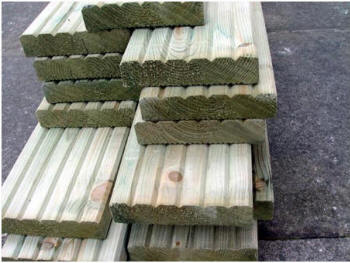
Gardening Businesses
Gardening Businesses listed in the UK counties and USA states. County and State Listings of businesses involved in Garden supplies and services. If you wish to be added to the Directory, please send us your information. Having problems, use the search box
Businesses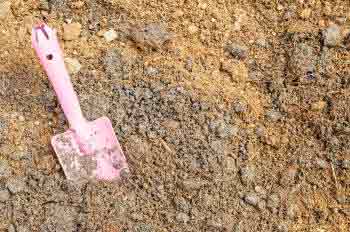
Gardening
In this section you will learn about Gardening Basics, Containers, Landscaping, Propagation and Soil.
Gardening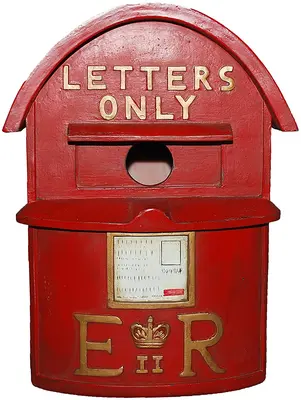
Gardening Gifts
Gardening Gifts and Reviews, Read Before you Buy
- Gardening Gifts Ideas
- Gifts For Her
- Gifts For Men
- Power Tool Gifts
- Cheap Gifts
- Personalised Gifts
- Wildlife Gifts
- Family Gifts

